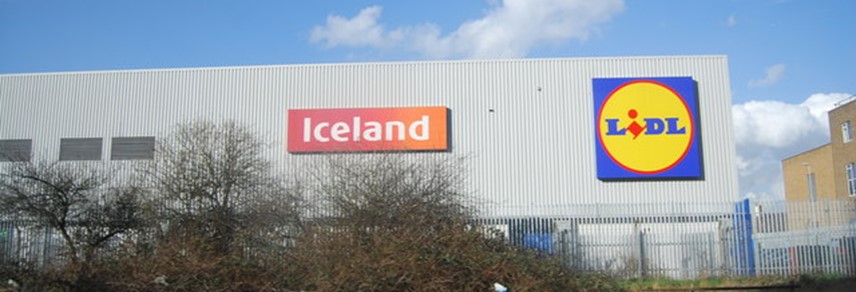
THE GREAT SUPERMARKET PLASTIC DEBATE
This week, two announcements showcased the two different schools of thought around food packaging in supermarkets. One focused on the environment and commitments made to waste reduction. The other looked at convenience and disability awareness. The proof is in the pudding for food sales: sustainability and CSR efforts are not consistent across the sector.
Iceland announced that it would do away with all plastic packaging in its own brand products by 2023. The supermarket cited a survey by OnePoll stating that almost 70% of UK shoppers think supermarkets should go plastic-free.
On the other side of the vegetable aisle, Lidl was lambasted for the sale of two-packs of ‘peeled onions,’ available for purchase in a plastic wrapping. Social media commenters noted that onions – by grace of nature – come with their own unique, biodegradable packaging. Others said the decision helped those with disabilities who rely on pre-prepared food.
Both are signatories to the Courtauld Commitment 2025; both state environmental motivations as part of their sustainability programmes. The commitment is an initiative led by the Waste and Resources Action Programme (WRAP). The brands’ respective statements today show a divide that still exists in sector-wide commitments to better environmental practice.
A Lidl spokesperson told Sky News, “At Lidl we are proud to have one of the highest proportions of loose fruit and vegetables of all British supermarkets, and continually test and trial the removal of packaging throughout the range. We remain mindful that packaging can be beneficial in optimising shelf life and helping to reduce food waste, both in store and at home, so we are also working closely with both our suppliers and industry partners WRAP, to increase the proportion of recyclable material used.”
Iceland’s MD Richard Walker said, “The world has woken up to the scourge of plastics. A truckload is entering our oceans every minute, causing untold damage to our marine environment and ultimately humanity – since we all depend on the oceans for our survival. The onus is on retailers, as leading contributors to plastic packaging pollution and waste, to take a stand and deliver meaningful change. Other supermarkets, and the retail industry as a whole, should follow suit and offer similar commitments during 2018. This is a time for collaboration.”
Walker points to Iceland’s heritage as a family organisation as a key enabling factor to being able to adopt pioneering sustainability goals. He also reiterated a commitment to avoiding the consequences of packaging waste – one of which has traditionally been the exporting of waste and recycling to other countries.
Both call for collaboration; both are part of the Courtauld Commitment. One of WRAP’s goals for 2018 is to eliminate unnecessary packaging, ensure plastic that is used is recyclable, increase recycled content in plastic packaging and improve education about recycling and plastic reduction among the public. However, those commitments and initiatives may not lead directly to brand loyalty.
"One note of caution is that Iceland’s potential customers are less likely than the average to say they only buy products from companies that have ethics and values that they agree with (26% versus 34% of the public). A similar divergence is seen among Lidl’s potential new customers (28% versus 34%)," says YouGov's research director, Richard Moller. More from YouGov's research looking into the correlation between ethics, supermarket brand loyalty and the plastic debate is below.
Furthermore, today the EU announced that it would be banning single-use plastics by 2030. Citing issues related to the environmental impact of plastics on the ocean and landfills, the initiative will impact a number of different industries and require an increased commitment – like Iceland's – on the part of retailers to fully eliminate plastic waste.
Richard Moller, research director, YouGov

YouGov Profiles allow see how important the issues of sustainability are to people thinking of shopping at Iceland and Lidl.
Looking at those that would consider shopping with Iceland, almost six in 10 (59%) say that ‘the plastic bag charge is exactly the sort of thing that the government should be doing – taking action to save the environment in small and simple ways.’ Among those who would consider Lidl, this rises to two thirds (66%).
However, around a third (35%) of people thinking about buying from Iceland believe that ‘it [it being the plastic bag charge] is irritating bossing around by the government – a distraction from the issues that deserve attention.’ This view is shared by just a fifth (21%) of those who’d contemplate shopping at Lidl.
Added to this, when reflecting on a hypothetical ban on plastic cutlery, eight in 10 (80%) potential Iceland customers support the initiative, with just 6% opposing it. Looking at Lidl, the numbers are even greater (87% vs. 5%).
However, one note of caution is that Iceland’s potential customers are less likely than the average to say they only buy products from companies that have ethics and values that they agree with (26% versus 34% of the public). A similar divergence is seen among Lidl’s potential new customers (28% versus 34%).
In the past, Lidl has been commended for its stance on its staff pay structure. YouGov brand tracking data has indicated an upturn in the supermarket’s Impression score (whether someone has a positive impression of the brand) following headlines linked to its policy to pay above the Living Wage.
However, while it is doubtful that the ‘naked onions’ controversy will have much impact on the brand, it will be keen to reestablish itself as a company that has an identity that is distinguishable from its higher profile and larger rivals.
Iceland on the other hand, will be hoping that the move begins to shift opinion and perception of what the brand stands for, and possibly persuade those who have never shopped there to give it a try.
For more from Communicate magazine, follow us on Twitter @Communicatemag

